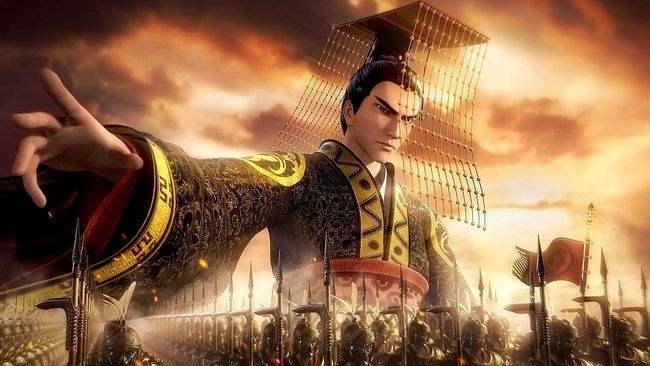Qin Shi Huang's main achievements are as follows:1. He established the first unified feudal dynasty in Chinese history. This is mainly reflected in his unification of the six countries. At the end of the Warring States period, the trend from the division of the clan to the unification of the country became increasingly obvious. At that time, the Qin state was the strongest and had the conditions to unify the six eastern countries. In the early years of the reign of the King of Qin, the state administration was controlled by Prime Minister Lü Buwei and the eunuch Miao Yu. In 238 BC, he personally presided over state affairs, quelled the Miao rebellion, relieved Lü Buwei of his post as chancellor, and moved him to Shu County; Wei Xuan, Li Si, and others were appointed to deploy strategies and unify the country. From 230 BC to 221 BC, the six kingdoms of Korea, Wei, Chu, Yan, Zhao, and Qi collapsed one after another, and finally established the Qin Dynasty, the first unified, multi-ethnic, and authoritarian centralized state in Chinese history. 2: Qin Shi Huang established a feudal monarchical system that lasted until the end of the Qing Dynasty. (1) To show off his exploits in unifying the world and establishing the supreme authority, he created the title of "Emperor", called himself the first Emperor, and declared that his descendants would be called second, third, or even forever. (2) Subsequently, he abolished the sub-feudal system throughout the country and replaced it with the county system; (3) under the direct control of the emperor, established a number of bureaucrats from the central government to the counties; (4) on the basis of the original decrees of the Qin State, absorbed some provisions of the laws of the six countries, and formulated and promulgated unified laws. All laws and ordinances are regularly reviewed and do not allow confusion and tampering. In order to develop water and land transportation throughout the country, we also implemented "same-track trains", destroyed the cities of the ancient countries of the East, and built flying highways from Xianyang to Yanqi and Wuchu, from Xianyang to Yunyang (now northwest of Chunhua, Shaanxi) to Jiuyuan (now west of Baotou, Inner Mongolia).

The "Five Foot Road" was built in the southwest and dug a spiritual canal to connect the Xiang River and the Li River. 3: He took a series of measures to consolidate a unified centralized state economically, culturally, and ideologically. This further consolidates the situation of unity. (1) Economically, we vigorously pursued the policy of emphasizing agriculture and suppressing commerce, and supported the development of private ownership of feudal land. In the thirty-first year of Qin Shi Huang (216 BC), he ordered that "the head of Guizhou be established with the status of Shishi", that is, as long as the landlords and peasants who occupied the land declared the amount of land to the government and paid taxes, their land ownership would be recognized and protected by the government. (2) Take the weights and measures formulated by Shangmartin as the standard to unify the national weights and measures system. Abolish the currencies of various countries during the Warring States period and unify the national monetary system. (3) In terms of culture and ideology, the XiaoZhuo was formulated based on the common Chinese characters of the Qin State and distributed nationwide as a standard Chinese character. It also applied the Five Virtues Doctrine of the Yin-Yang School of the Warring States Period, creating theological basis for the autocratic rule of the Qin Dynasty. In the Qin Dynasty, the water was black and finally counted to six. Therefore, it is stipulated that clothes, flags, and flags are still black, and the number of Fukukawa, Judge, Yucheng, etc. system is 6. Water dominates yin, and yin represents punishment and killing, so on top of this is the execution of heavy punishments. (4) In 34 years, the first Emperor, on the advice of Prime Minister Leith, ordered the destruction of folk poetry collections, books and baijia languages, and banned private study. Later, Hou Sheng and Lu Sheng, who were searching for immortals, escaped, implicating more than 400 Confucian scholars and alchemists, and killing them all in Xianyang.